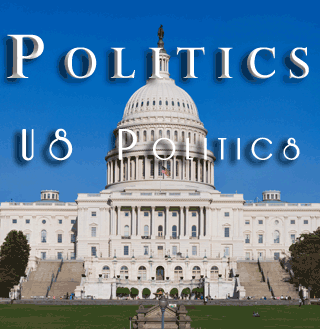An Outdated Fear by Any Other Name
Should socialism still be an issue in the 21st century?
Now that three new Democratic Socialists have joined Bernie Sanders in Congress and several more elected to various state legislatures, isn't it time we dropped socialism as a campaign issue?
Republicans have already raised the specter of pseudo-socialists like Stalin and Castro gaining control of the US government so that they can control the lives of all Americans. This leads to despair of the US government for fear of that potential tightening control.
Those named above were never socialists. They were heads of criminal gangs who call themselves socialists because socialism is so popular elsewhere in the world.
America is already moving from capitalism to socialism, even as China is creeping from socialism to capitalism. Are these two countries, with the largest economies in the world, bound to meet somewhere in the middle with a similar mixture of social systems?
Shouldn't we be thinking about the issues that these two social systems raise, rather than using the name of one to frighten ourselves in some second-grade playground name-calling contest?
China has one socialist party, the Communist Party, which allows considerable private enterprise, ownership and wealth, permitting classes to arise as in capitalist countries. Since China has a one-party government, the main problem with the US government, gridlock, is impossible. China has the perfect government for capitalism. It has an authoritarian government, like all corporations.
The US already has a mixed economy. The most extreme form of 19th century socialism was expressed in the Communist Manifesto (1848). Four of the ten central principles of that manifesto have already been adopted in the US: (1) a progressive graduated income tax, (2) the establishment of a "national bank" centralizing credit (the Federal Reserve System), (3) free education for all children in public schools, and (4) the abolition of child factory labor.
We should be talking about the morality of issues that both systems raise. All countries on Earth are now mixed societies. The Scandinavian countries represent the best balance, but all European countries have universal healthcare, debt-free if not free education through the doctorate level, paid 5-week vacations, paid family leave, and so on—all socialist issues.
These are the issues we should be examining. Is healthcare a right or a privilege for those who can afford it? How can we maintain a strong economy in a society that cannot educate is children to reach their full potential without long-term debt?
The focus of capitalism is increasing wealth so we can afford to sustain socialist programs. How do we best do that? Raise the minimum wage? Allow wealthy people lower taxes? Infuse the economy with tax funding? Allow, expand or close tax loopholes? These are the essential issues of capitalism which must be discussed in the context of the issues that socialism raises.
We should ignore the superficial distraction like the how "socialist" politicians are. This is an issue that belongs in the catalog of distractions like the (legal) sex lives of politicians, the political correctness of what they say, how they dress and look, who they associate with, which the US media corporations feast on. Let's get down to the issues that both these theories raise without using their names as bogus threats.
It is time to stop comparing 19th century capitalism and (pseudo)socialism. Such comparisons are irrelevant to political discussions of the 21st century’s hodge-podge of mixed economies.
(The Harrisburg Patriot-News March 17, 2019)




